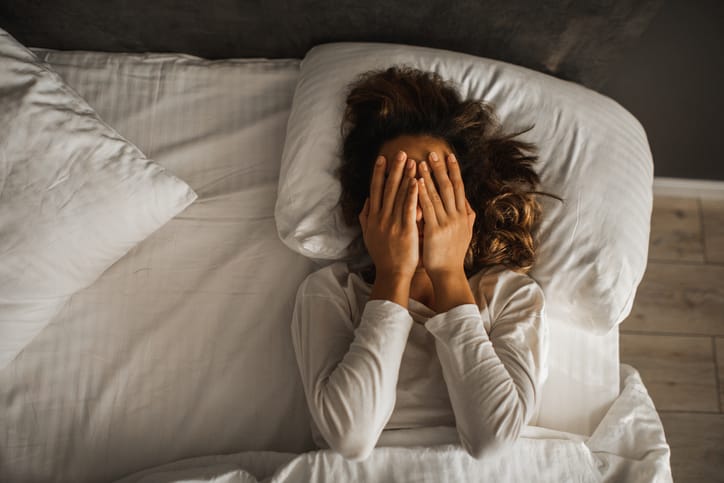Insomnia is commonly reported by people living with systemic mastocytosis (SM). This can be attributed to several SM-related factors, including high histamine levels from abnormal mast cell activity or symptoms such as itching, chronic pain, anxiety or the side effects of medication.
Persistent insomnia can be debilitating, so it is important to talk to your health care team to find a way to deal with it. There are treatment options and coping strategies to help manage and reduce SM-related insomnia.
What is SM?
Systemic mastocytosis (SM) is a rare hematological disease characterized by mast cells that are overactive and accumulate in different parts of the body such as the bone marrow, liver, spleen, gastrointestinal tract and lymph nodes.
How insomnia affects quality of life
Living with insomnia can severely impair your quality of life and lead to depression, anxiety or feelings of isolation. It can affect your well-being, productivity at work or cognitive performance. Over time, it can be linked to health complications such as psychiatric disorders, Alzheimer’s disease or heart failure.
In people living with SM, sleep disturbances and lack of quality sleep add to the burden of SM symptoms and can make the effects more intense.
Treatment options for insomnia
Antihistamines are used in SM to block the effects of mast cell histamine and treat symptoms such as itching and flushing. They also have a sedative effect.
Mast cell stabilizers such as cromolyn sodium are also commonly used to reduce the release of histamines and manage symptoms such as skin problems, diarrhea and stomach pain.
It is worth noting that while antihistamines clearly have benefits in treating SM symptoms, side effects may include dry mouth and headache. Cromolyn sodium can also have side effects that include headache, diarrhea, and muscle and joint pain.
Be sure to consult your doctor before taking any pain relief medication or sedatives, as some may trigger SM symptoms.
Nonmedical strategies for coping with insomnia
Managing insomnia may also involve lifestyle adjustments and relaxation techniques.
Cognitive behavioral therapy for insomnia (CBT-I) is a structured, comprehensive process of exploring and resetting the thoughts, feelings and behaviors that contribute to insomnia. It also introduces relaxation techniques, deep breathing, good sleep hygiene and stimulus control and emphasizes the importance of exercise, diet and a good sleep environment.
A consistent sleep routine can also help in combating insomnia. It involves setting a sleep schedule: going to bed and waking up at the same time every day.
Avoid anything that may disrupt sleep, which may include caffeine, alcohol, a heavy meal and other foods and allergens that may trigger SM symptoms. Stretching, deep breathing, self-guided meditation or relaxation via a smartphone application can all contribute to a good night’s sleep.

